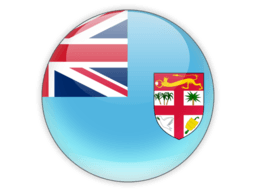
Regions of Fiji
Explore 5 regions
Cities of Fiji
Discover 9 cities across 5 regions
Central(2)
Eastern(1)
Northern(1)
Rotuma(1)
Fiji is an island country in the South Pacific Ocean. It is located about 1,100 nautical miles northeast of New Zealand's North Island. The archipelago is comprised of more than 300 islands, but only about one-third of them are inhabited. The two largest islands are Viti Levu and Vanua Levu, which are home to more than 80% of the country's population.
Fiji gained independence from the United Kingdom in 1970, but has experienced political instability in recent decades, including four military coups. The current government is a parliamentary democracy, with a president serving as a ceremonial head of state.
Fiji's economy is heavily reliant on tourism, with visitors attracted to its stunning beaches, crystal-clear waters, and tropical climate. Agriculture, including sugar cane, coconut, and fisheries, is also an important sector. The country has a diverse cultural heritage, with Indigenous Fijians, Indo-Fijians, and people of other ethnicities living together.
Fiji is known for its vibrant culture, which includes music, dance, and traditional ceremonies such as kava drinking. The country is also renowned for its rugby team, which has won several international competitions.
Telephone Code
679
Local Emergency Phone
911
Vaccinations
An International Certificate of Vaccination for yellow fever is required for travelers arriving from countries with a risk of yellow fever transmission and for travelers having transited through the airport of a country with risk of yellow fever transmission. See WHO recommendations.
Climate
Tropical marine; only slight seasonal temperature variation
Currency (Code)
Fijian dollars (FJD)
Electricity/Voltage/Plug Type(s)
240 V / 50 Hz / plug types(s): I
Major Languages
English (official), iTaukei (official), Fiji Hindi (official)
Major Religions
Protestant 45%, Hindu 27.9%, other Christian 10.4%, Roman Catholic 9.1%, Muslim 6.3%, Sikh 0.3%
Potable Water
Yes, but some opt for bottled water
International Driving Permit
Suggested
Road Driving Side
Left
Tourist Destinations
Mamanuca and Yasawa Islands; Taveuni Island (includes Bouma National Heritage Park); Beqa Lagoon
Major Sports
Rugby, soccer
Cultural Practices
In more conservative village environments, it is considered proper to remove one's hat and sunglasses when greeting someone in public.
Tipping Guidelines
Tipping is not required or expected. In lieu of tipping individuals, many resorts have a "Staff Christmas Fund" box available so their guests can contribute to the staff as a whole. Round up the fare for taxis.
Souvenirs
Wood-carved mako masks and other tribal wooden items, shell items, pearls, pottery, tapa cloth; pandanus woven mats, baskets, and rope
Traditional Cuisine
Kokoda — fresh, raw fish such as mahi-mahi or snapper marinated in a combination of coconut milk and citrus juices; often garnished with sea salt, minced chilis, finely sliced green onions, or coriander leaves
Geography
Area
total: 18,274 sq km
land: 18,274 sq km
water: 0 sq km
Climate
tropical marine; only slight seasonal temperature variation
Natural resources
timber, fish, gold, copper, offshore oil potential, hydropower
People and Society
Population
947,760 (2023 est.)
Ethnic groups
iTaukei 56.8% (predominantly Melanesian with a Polynesian admixture), Indo-Fijian 37.5%, Rotuman 1.2%, other 4.5% (European, part European, other Pacific Islanders, Chinese) (2007 est.)
Languages
English (official), iTaukei (official), Fiji Hindi (official)
Religions
Protestant 45% (Methodist 34.6%, Assembly of God 5.7%, Seventh Day Adventist 3.9%, and Anglican 0.8%), Hindu 27.9%, other Christian 10.4%, Roman Catholic 9.1%, Muslim 6.3%, Sikh 0.3%, other 0.3%, none 0.8% (2007 est.)
Population growth rate
0.42% (2023 est.)
Government
Government type
parliamentary republic
Capital
name: Suva (on Viti Levu)
Economy
Economic overview
tourism-based Pacific island economy, susceptible to sea-level rises; new energy infrastructure investments; major foreign direct investment; COVID-19 crippled tourism sector; privatizing state-owned enterprises; military coups have destabilized labor force
Real GDP (purchasing power parity)
$9.578 billion (2021 est.)
Real GDP per capita
$10,400 (2021 est.)
Agricultural products
sugar cane, cassava, taro, poultry, vegetables, coconuts, eggs, milk, ginger, sweet potatoes
Industries
tourism, sugar processing, clothing, copra, gold, silver, lumber
Exports
$1.171 billion (2021 est.)
Exports - partners
United States 29%, Australia 14%, New Zealand 7%, Japan 6%, Tonga 6% (2019)
Exports - commodities
water, refined petroleum, fish, raw sugar, gold (2019)
Imports
$2.344 billion (2021 est.)
Imports - partners
Singapore 18%, Australia 13%, China 13.8%, New Zealand 11%, France 11%, South Korea 8% (2017)
Imports - commodities
refined petroleum, aircraft, cars, wheat, broadcasting equipment (2019)
International Airports in Fiji
Discover 3 major airports serving Fiji
Mark Fiji as Visited
Add Fiji to your personal travel map and track your journey around the world. Share your adventures and see your progress grow!